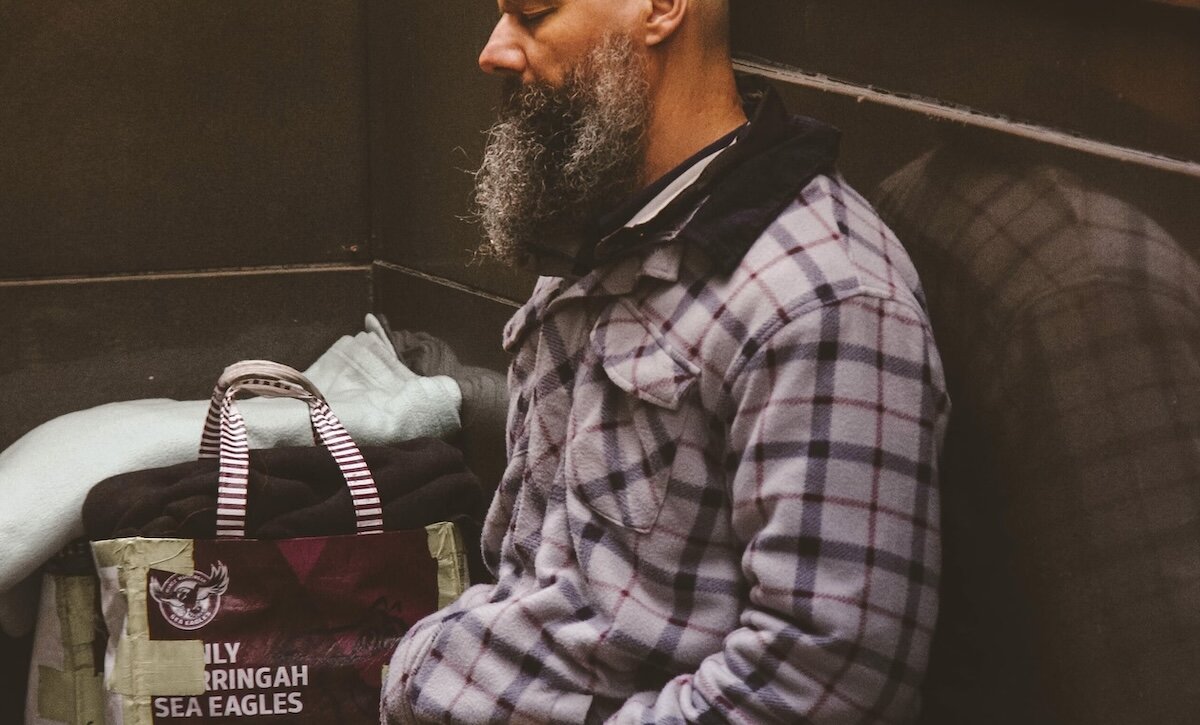it’s a heartbreaking scene that we’ve all seen on the streets of America. A figure, hunched over, covered in tattered clothing with a soiled cardboard sign scribbled in Sharpie to indicate that they once served our country. You leave a dollar, sometimes you don’t, but nearly every time you pass you wonder how such circumstances could befall someone who served, without question, the agenda put forth to them by the United States government.
As of 2023, there are approximately 67,500 homeless veterans, comprising almost 11% of all homeless in the U.S.A. Moreover, veterans are 2x more likely to become homeless compared to those who haven’t served in the military. This data is both tragic and alarming, leading millions of Americans to wonder; Why are so many veterans homeless?
While failures with respect to federal funding, misallocation of resources, and affordable housing are certainly a part of the problem, discussion is beyond the scope of our expertise. Instead, we can speak to the mental and behavioral health aspects of why the scene we’ve described above is all too common.
There is a defined link between compromised mental health and homelessness. An assessment by the U.S. Department of Housing and Urban Development finds that 25 percent of America’s homeless population are seriously mentally ill, and 45 percent have some form of mental illness. The most common issues pertain to affective disorders such as depression and bipolar disorder, schizophrenia, anxiety disorders and substance abuse disorders. Logically, the relationship between compromised mental health and homelessness is a two-way street. Poor mental health may lead to cognitive and behavioral problems that challenge an individual’s ability to maintain a career and steady income which may contribute to homelessness. Then, studies confirm that the trauma of becoming homeless can exasperate an individual’s symptoms of mental illness. Many turn to (or increase use of) alcohol and drugs to cope, which creates an environment that worsens symptoms of mental health problems. Compounding the problem even further, is that homeless people with mental illnesses are more likely to have negative interactions with police and the justice system, creating a revolving door between the streets, courts, and prison.
This leads us back to military veterans. They are at greater risk of compromised mental and behavioral health than the general population, and this contributes to them being 2x more likely to become homeless. We explore this further, below.
Mental and Behavioral Health Factors That Contribute to Veteran Homelessness in America
PTSD and Other Behavioral Health Disorders
Research shows that military veterans have higher rates of behavioral health disorders than civilians. For instance, post traumatic stress disorder (PTSD) is evident in 29% of veterans who served in Operations Iraqi Freedom (2003-2011) and Enduring Freedom (2011-2021). Veterans also exhibit higher rates of anxiety, stress, and depression related to things that they have seen, done, and experienced during their time in service.
Physical Disability Impact on Mental Health
In addition to mental health scars, veterans wear visible physical disabilities. Data finds that 27 percent of all veterans have a service-connected physical disability. Not only does this limit their ability to maintain steady income, it compounds mental health issues they may already be experiencing. Substantial evidence shows that those living with physical disabilities are at least three times more likely to experience depression compared to the general population. The CDC reports that that mental distress is almost 5 times more likely in those with physical impairments. The layers just keep piling higher and higher on top of our vulnerable veterans.
Problem Gambling
There is one behavioral health disorder that does not receive anywhere near the same amount of press as the rest – gambling disorder. And guess what? Our veterans are more vulnerable to it as well. Studies find that gambling among military is 3.5 times higher than among civilians, and that the rate of problem gambling among military is nearly 69 percent compared with almost 19 percent among civilians. Among the long list of dangers of sports betting and casino gaming, are large levels of debt in addition to job loss, and legal issues, which logically all contribute to an inflated risk of homelessness. Furthermore, medications used to manage symptoms of the same affective disorders referenced in the introduction (bipolar disorder and schizophrenia) are known to increase the risk of problematic gambling behavior. A vicious cycle, indeed.
We encourage you to learn more about this problem by reading our Spotlight on David Yeager – a U.S. Army veteran who is in recovery for gambling disorder and working to help other veterans who struggle with the same concern.
What Needs to be Done
Again, there needs to be a fundamental shift in resources (and way of thinking) at the federal level to better support our veterans. That being said, a more holistic approach needs to be taken, one that involves intervention regarding mental and behavioral health.
Each year, there are an average of 200,000 American service members who leave the military to return to life as civilians. In addition to initiatives to support the mental health of those who have already been discharged, intervention during initial transition is extremely important to stemming veteran homelessness. Knowing this, Kindbridge has pledged to work tirelessly to provide powerful and accessible mental health support for those who have served our country. Together with the Kindbridge Research Institute (KRI) we have initiated a Military Veterans Project in the state of Colorado. The project includes dedicated programs that provide active military personnel and veterans with access to important care services, support groups, post-secondary fellowships, and career training. Our hope, is that the other 49 U.S. states will take note of Colorado’s efforts, and lean on our Military Veterans Project to scale it across the country. The expected result, is not only a sweeping improvement in the mental health of our cherished veterans, but an end to the epidemic of veteran homelessness in the USA.
Concerned Veterans, Military Personnel, and/or Related Organizations:
CALL +1 (877) 426-4258
OR


